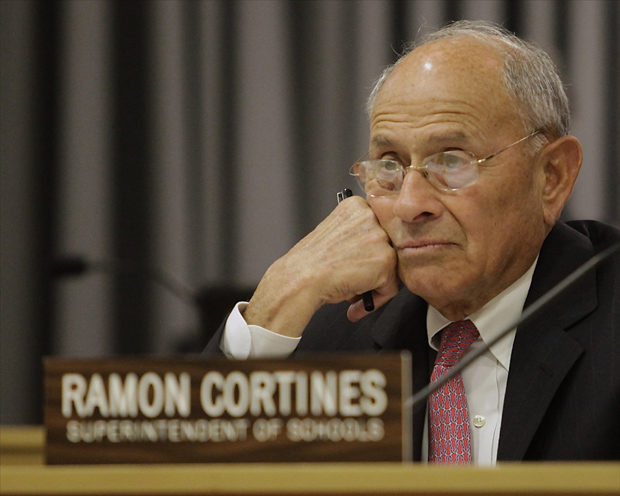EDUCATION: On his way out, former LAUSD Superintendent, Ramon C. Cortines, defended his decisions and expressed his thoughts about the push to maximize opportunities in non-traditional school settings.
By Matt Kaye, Editor
The state of K-12 education is a concern shared by almost every community in the United States. Every family wants its children to attend the best school their community has to offer, where a child can flourish and gain the tools and knowledge necessary for success. Whether it be a competitive charter school, a pricey private school, an arts school, a Science, Technology, Engineering and Math (STEM) school or a traditional, public school (like Poly), parents often consider the quality of each option before they register their children.
Last month, the newly retired superintendent of Los Angeles Unified School District (LAUSD), Ramon Cortines, offered ideas, commentary and responses centered around the future of education in the large metropolitan area and the problems that need fixing. What resonated most from this forum was not simply a restatement of any school district’s goals of expansion and innovation but a much more modern dilemma: the charter school.
At the discussion held by the Los Angeles Times in mid-December, Cortines voiced his opposition and fears about the progression and looming takeover of charter schools taking place in communities across the United States.
Charter schools are public institutions to which families may send their students but stand apart from direct government influence. Teachers, businesses and communities are some of the groups who submit proposals to a proper government body in forming a charter school. The local or state authority will then review the stated goals of a new school and consider granting a “charter,” which establishes the school and, oftentimes, its funding. Once established, a charter school operates with more independence and leeway while pursuing its objectives. Such a school is threatened with closure if performance is lacking.
Cortines, like many proponents of traditional schools, cited the inherently diverse interests of those who establish, administer and sometimes fund charter schools. While one of those interests is clearly a quality education for deserving students, another may be limiting its scope, whereas a traditional school may have a worldlier approach. On that principle, many have objections to the Eli and Edythe Broad Foundation, which has extensively supported charter schools in the L.A. area and has desired to expand them further. The goal may not be to best educate the highest amount of students. Furthermore, many denounce the selective enrollment of charter schools, claiming that it closes a charter school opportunity to some students and is an unfair means of securing solid performance levels.
Supporters of charter schools champion parent choice and circumventing public school deficiencies, including unfocused teachers on tenure. They also avoid the expense of well-regarded and well-performing private schools, an option many families simply do not consider. Those with this philosophy look at the Broad Foundation and see a philanthropic endeavor that empowers students.
While the charter school industry totes some success stories, Cortines summed up the biggest problem of education to be the family. “Schools are struggling in America because families are struggling in America,” Cortines deduced.
While the charter school debate will remain fresh in Southern California for quite some time, families in this area are more concerned with the direction of LAUSD, which is dictated in large part by the superintendent whose decisions either have a direct effect on policy or reverberate with other school districts, all which guide parents and students to a school they see best.
With Cortines now out of office, L.A. residents have expressed their ideal candidate. In a South L.A. conference with parents, students and teachers this past November, the district heard pushback about a superintendent who had a preexisting vision on how to run the district. Rather, the community largely argued, a leader who listens, understands and then acts is ideal.
On January 11, 2016, the Los Angeles Board of Education released their pick for the new superintendent early in their search. Michelle King will soon lead the massive district. With experience as a high school principal and deep knowledge about LAUSD, she is poised to bring something new to an educational body so often criticized. Whether or not she will combat the growing issue of charter schools, whether she will implement a preconceived plan or respond to the community and their concerns as they appear, she has plenty to work on and many decisions to make for the present and future of primary and secondary education in Los Angeles, Southern California and beyond.

